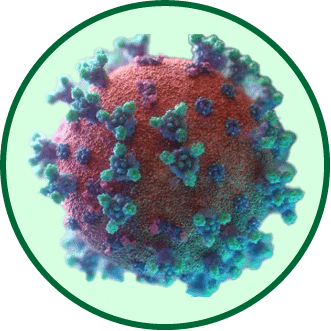Lesson 10 - How COVID-19 mRNA "Vaccinations" Work
If you have been vaccinated, are suffering from adverse event illness or would rather not learn about the problems with the COVID-19 vaccines right now, please spend time reviewing the other lessons for your health recovery, as that is the primary goal of this course.
This lesson reveals some disappointing and disturbing evidence about the vaccines' failure to live up to their advertised promises, which is why following the recommendations in this course is so important.
We begin with the conventional explanation of how the COVID-19 vaccines are supposed to work, for your reference.
Then we will look at the data and research compiled over the last 3 years to see what actually happened, and learn from the successes and failures to benefit us going forward.
Ask yourself honestly, how much did you know about the COVID-19 vaccines before you decided to take them?
Did you really have informed consent about the contents and safety study results?
Were you aware that they were experimental and testing was only months instead of years?
Were you cautious and decided to wait and see?
Or perhaps you were skeptical and decided to do some research online.
Make a note or memo for your Personal Progress Profile.
When we are worried and stressed it is hard to think clearly, and we sometimes let others influence us and decide what is best for us.
It is normal to rely on authority figures like political leaders or medical experts.
Think back to the early part of the pandemic and ask yourself what convinced you to take the shots, to wait and see, or do your own research.
Perhaps you followed recommendations from your doctor, friends or advice given on a television news show.
If we think back and consider what motivated us to make a good or bad decision, it can help us make better choices in the future.
As the old saying goes...
Fool me once, shame on you... fool me twice, shame on me...
We certainly don't want to get fooled again!
Now let's examine the conventional wisdom that was given to us in the early stages of the pandemic and see if it was correct.
Here is the basic story behind how the COVID-19 vaccines work from Nature magazine as presented by BBC television. Two famous media sources promoted this explanation.

Scientists take part of the virus' genetic code and turn it into a vaccine that is injected into the patient.
Unfortunately, Pfizer used high quality manufacturing methods for safety trials and low quality manufacturing methods for mass distribution.
The result was over 1,200 "adverse events of special interest" in their internal documents released by court order.
This means the shots received by the public were not covered by the Emergency Use Authorization, and therefore voids the legal immunity shield given to vaccine producers, allowing people injured to seek compensation.
First, the vaccine enters the cells and tells them to make the coronavirus spike protein.
Moderna describes this as software programming and recent studies show it can alter DNA and affect future generations.
Additionally, there is no OFF switch and any foreign spike protein created will be regarded as an intruder, so the body will begin an endless war attacking itself, which cannot be good for your health.
Then the body's immune system reacts, produces antibodies and activates T-cells to destroy the cells producing the spike protein.
Unfortunately, the antibodies produced at the injection site are not effective at protecting you from the common route of infection by eyes, ears, nose and mouth causing problems in your respiratory system.
And your immune system will destroy cells anywhere in your body that receive the mRNA spike protein factory instructions.
If the patient later catches coronavirus, the antibodies and T-cells are activated to fight against it.
Unfortunately, every publication on vaccines for coronaviruses from 1990 to 2018 concluded that vaccines would not work on coronaviruses.
This is largely because they are always playing catchup for rapidly changing variants.
By the time a vaccine becomes available it is already obsolete and only serves to distract our natural immune system from protecting us against new variants or other pathogens.
This actually promotes illness and increased sickness, as verified by published medical research.
The famous Cleveland Clinic in the US carefully monitored over 52-thousand staff members and published its medical research, which showed that illness increased with each shot, the opposite of what we have been told would happen.

This data exposed the harmful aspects of the Covid shots and was harshly attacked by medical authorities responsible for their approval and promotion.
A follow up study to support the validity of the original data simply analyzed staff members who were "Up to date on COVID-19 vaccination" and those who were "Not up to date on COVID-19 vaccination", which also proved the shots created more illness.

This conventional explanation is the ideal situation where the vaccine stays in the shoulder muscle, stops producing spike proteins after a few hours and is completely cleared from the body by the lymphatic system in a few days.
But unfortunately, Pfizer's bio-distribution study showed that the contents of the vaccine travel throughout the body and accumulate in vital organs and bone marrow, severely affecting fertiliy and overall health.
This new technology has a number of problems that made it unsuccessful in animal studies, and was therefore known to be extremely dangerous for use with people.
We want you to maintain a positive outlook for your recovery and prevention of further infection, so detailed information will be available in our Deep Dive course if you are interested to know more.
Next, we will look at whether there really was a health emergency that meets the standard of a "pandemic" requiring drastic emergency measures.
Was solitary confinement sheltering at home really the best approach?
Social contact is very important for maintaining mental, emotional and physical health.
Was closing down small and medium sized businesses resulting in unemployment and bankruptcies necessary?
Previously, the World Health Organization's pandemic recommendations were simply to stay at home if you are sick and wash your hands frequently with mild soap.
So why suddenly change to unproven, damaging social and economic changes for a supposedly new coronavirus that was similar to seasonal cold or flu?
We will explore this important issue and shocking evidence in our Deep Dive course if you are interested to know more.
You may be surprised to learn that, in fact, there are no valid medical studies confirming transfer of coronavirus illness between people.
Studies that were done many years ago actually failed to transmit illness and proved the opposite, so were never publicized.
Detailed explanations as to why are also available in our Deep Dive course.
Yet a modern medical industry has been created based upon this "transmission of infection" concept, which has never been validated using repeatable scientific methods for confirmation.
Next, we are sorry to inform you that US life insurance companies are reporting much higher rates of death and disability for working age professionals who have access to the best health insurance.
The one thing different that happened during 2021 onwards was workplace requirements for COVID-19 vaccinations to maintain employment.
For every excess mortality death there were four disabled workers in the civilian labor workforce.
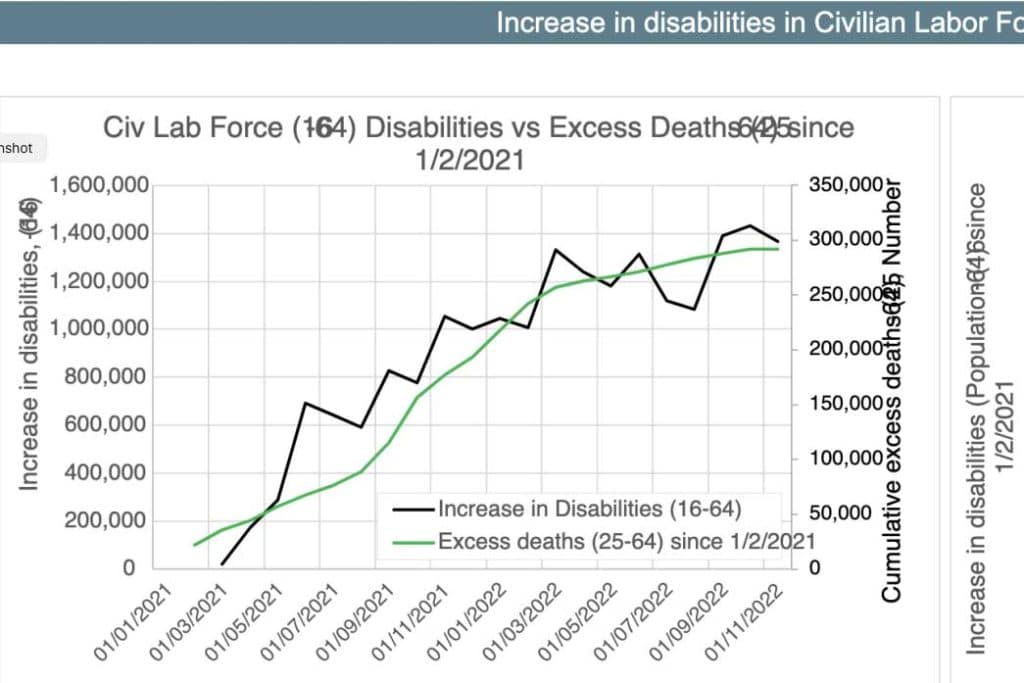
Looking back at the all cause mortality data for young people aged zero to 24, we might expect to see a drastic rise in deaths during 2020 and a decline in 2021 and 2022 as the vaccines arrived to save the day.
However, we find the hard data shows the opposite, with a decline during 2020 and a sharp, steady rise after the vaccines arrived.

What could cause the decline in deaths during the health emergency "pandemic" in 2020?
Certainly confining people to their homes like prisoners in solitary confinement had a very negative psychological and emotional effect, resulting in a dramatic increase in suicides, drug use and child abuse, especially among young people who thrive on social contact at school and playing with friends.
We know that young people were not visiting hospitals for conventional treatments, receiving pharmaceutical drugs and following the childhood vaccine schedule.
The next chart shows how vaccinated children experience higher levels of various illnesses.

In vaccinated children research showed chronic illness was 2.4 times higher, eczema 2.9 times higher, neurodevelopmental disorder 3.7 times higher, autism 4.2 times higher, ADHD 4.2 times higher, learning disabilities 5.2 times higher and allergic rhinitis 30.1 times higher than unvaccinated children.
In 2020 children were not getting their required vaccines and infants stopped dying from SIDS, Sudden Infant Death Syndrome.
Medical studies with unvaccinated children actually show much lower rates of illness and death, because harmful toxins are not being frequently injected, which damage their developing immune system.
We will leave examination of those medical studies and the harmful contents of vaccines for our Deep Dive course if you are interested to learn more.
Is it any surprise then that rural Amish communities, which don't vaccinate at all, have the healthiest children?
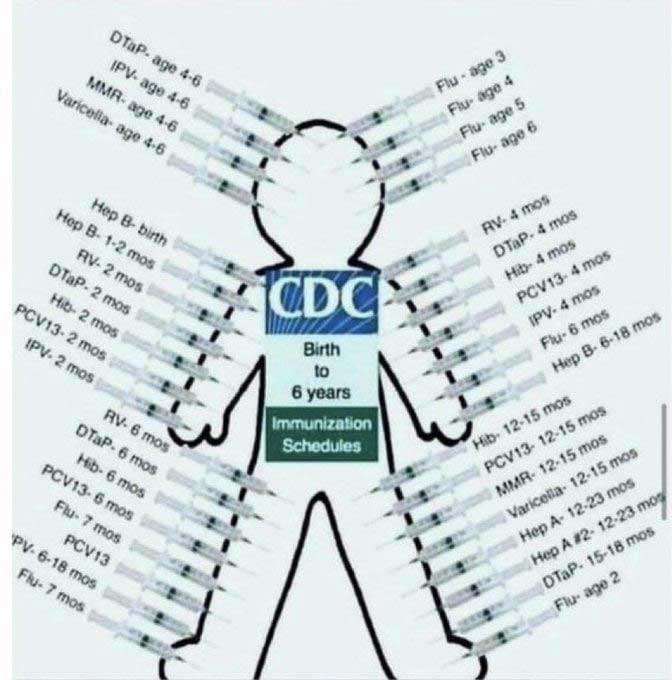
When we examine the 26 shots children in the US get in their first year and another 12 during the first six years of life, we must recognized that each shot contains harmful ingredients, which block the development of natural immunity.
What can we conclude from these sudden changes in society if overall deaths declined in 2020 during the supposedly deadliest health emergency in 100 years and then increased with the vaccine rollout?
Please consider government data from Canada, the UK, Australia and the European Union.
As of summer 2023, the increase in illness from COVID-19 among vaccinated people was approximately 3.5 times higher on average than unvaccinated people and increase in deaths up to 7 times higher.
This is mainly because the vaccines contain ingredients that weaken natural immunity with each shot, and make us more susceptible to various forms of illness, some that can be associated with COVID-19.
In Canada, the British Columbia government website illustrates that 93% of deaths from COVID-19 were among the vaccinated.
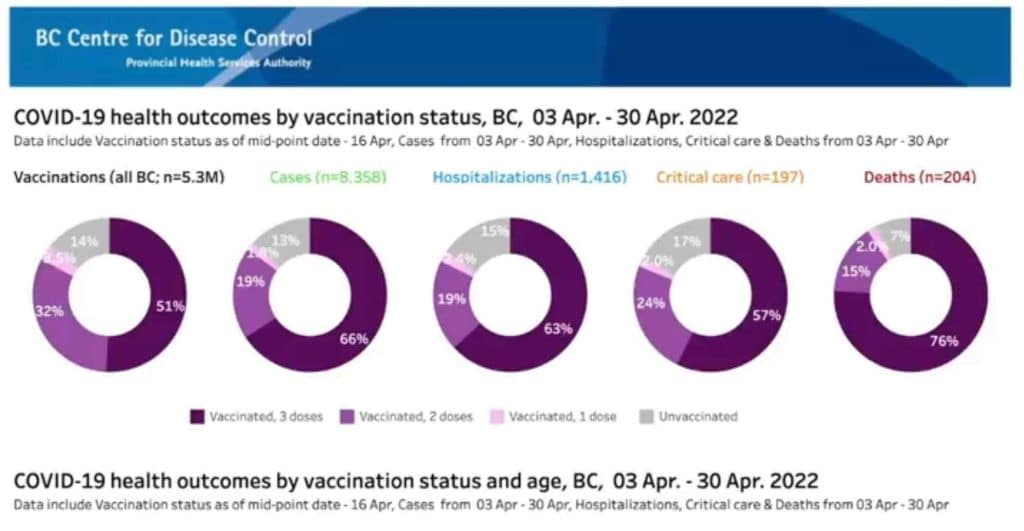
The rate would have been over 99% but to hide this fact the "unvaccinated" category definition included "not fully vaccinated" people who had one or two shots and tested positive, were hospitalized, in critical care or died anytime after receiving their first shot and less that 14 days after getting their second shot, a total of 8 to 12 weeks!
The first 10 days after injection is when most negative reactions to the shots occur.
Adding vaccinated people to the unvaccinated category was an effective way of hiding any negative data for official statistics.
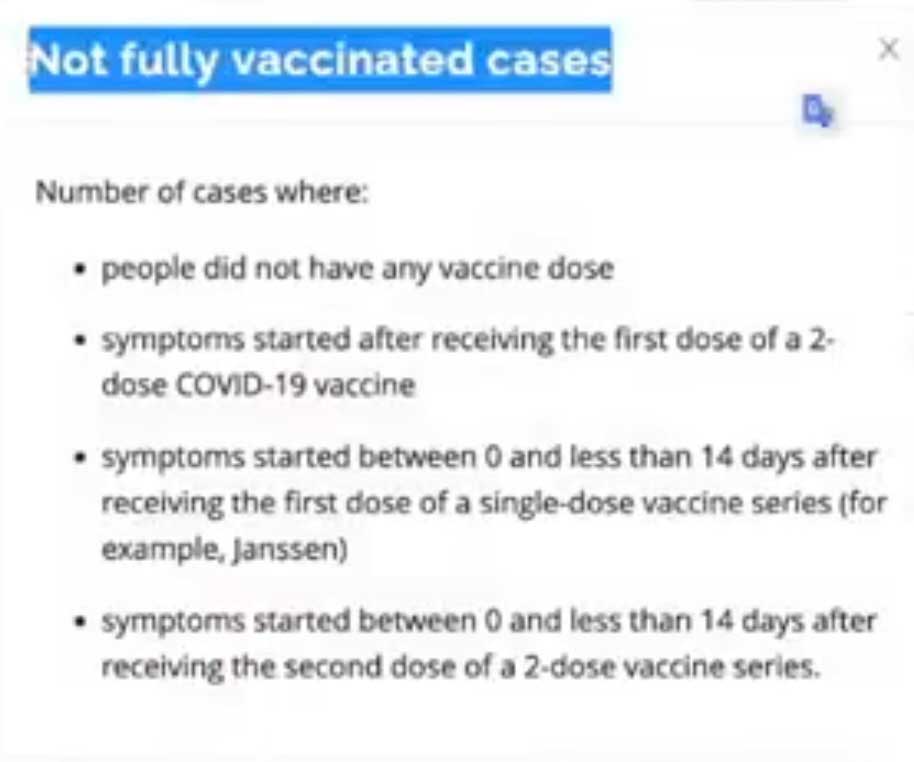
When the negative health data was questioned, the BC government responded by removing it from the internet and no longer providing up to date information for the public.
This form of censorship confirms health authorities were fully aware that the vaccines were causing more harm than benefit, but continued to promote them for young children and even 6-month-old infants.
Unfortunately, the Canadian Federal government had already paid in advance for multiple, untested booster shots for every citizen, with no possible refund even if the shots were never made or delivered.
Therefore, unethical vaccine promotion as "safe and effective" has continued to this day.
Health officials, some who had received multi-million dollar book deals like Dr. Bonnie Henry in BC, told reporters that since most of the people were vaccinated the statistics would naturally show higher rates of illness and death for vaccinated people.
This is dishonest on two counts. First, if the vaccines were "safe and effective" as advertised, they would have provided protection and caused no harm.
Secondly, the statistics were adjusted for "per 100,000 individuals" so allowing for an equivalent comparison.
A clear increase in hospitalization and death can be seen with each additional experimental injection.
Canadian government published data as illustrated in the chart below shows that COVID-19 positive cases increased 8 fold for vaccinated individuals, while hospitalizations increased 5 fold and deaths increased 5 fold.
The data confirms it is actually a pandemic of the vaccinated, while politicians and medical officials continue to hide the truth and say the opposite to promote the expiring stockpiles of vaccines.
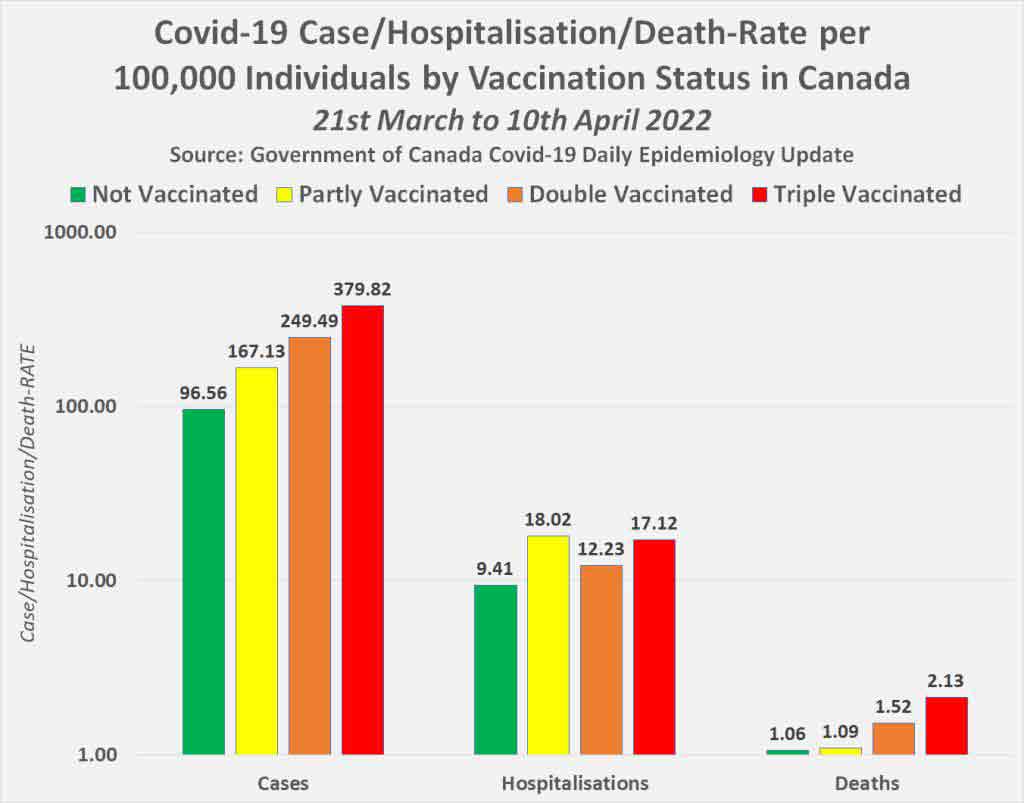
The United Kingdom initially posted data on government websites. However, when it turned increasingly negative over time for all age groups, COVID-19 information was routinely withheld from the public.
We can see that there is no benefit represented by positive numbers above zero in green. In fact, there is only harm represented by increasingly negative numbers over time in red, for every age group.
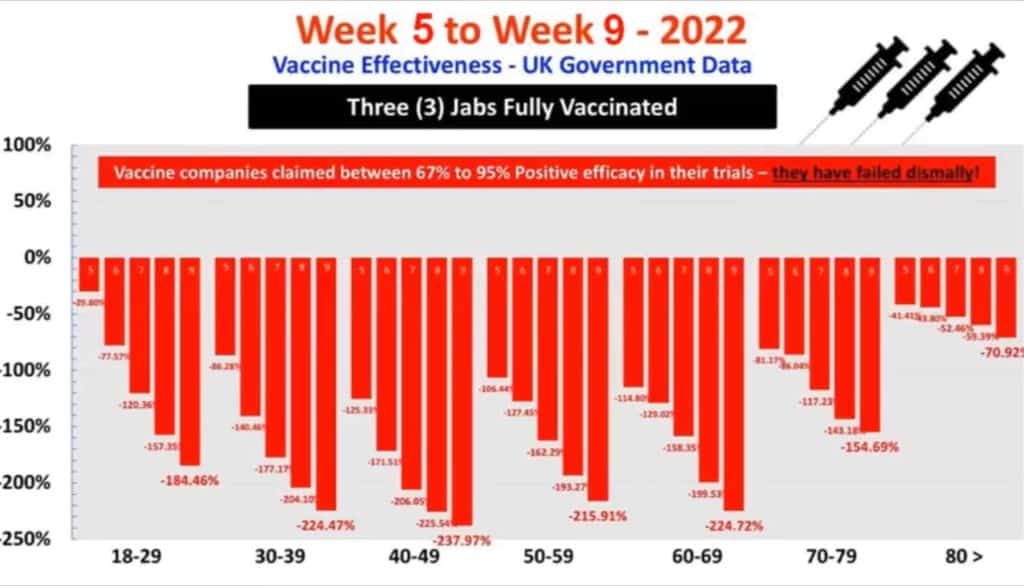
Australia now recommends the COVID-19 vaccinations only for people 75 years and older.
However, during the pandemic officials were forcibly vaccinating young people in public and keeping unvaccinated people under what amounted to house arrest. Human rights were violated.
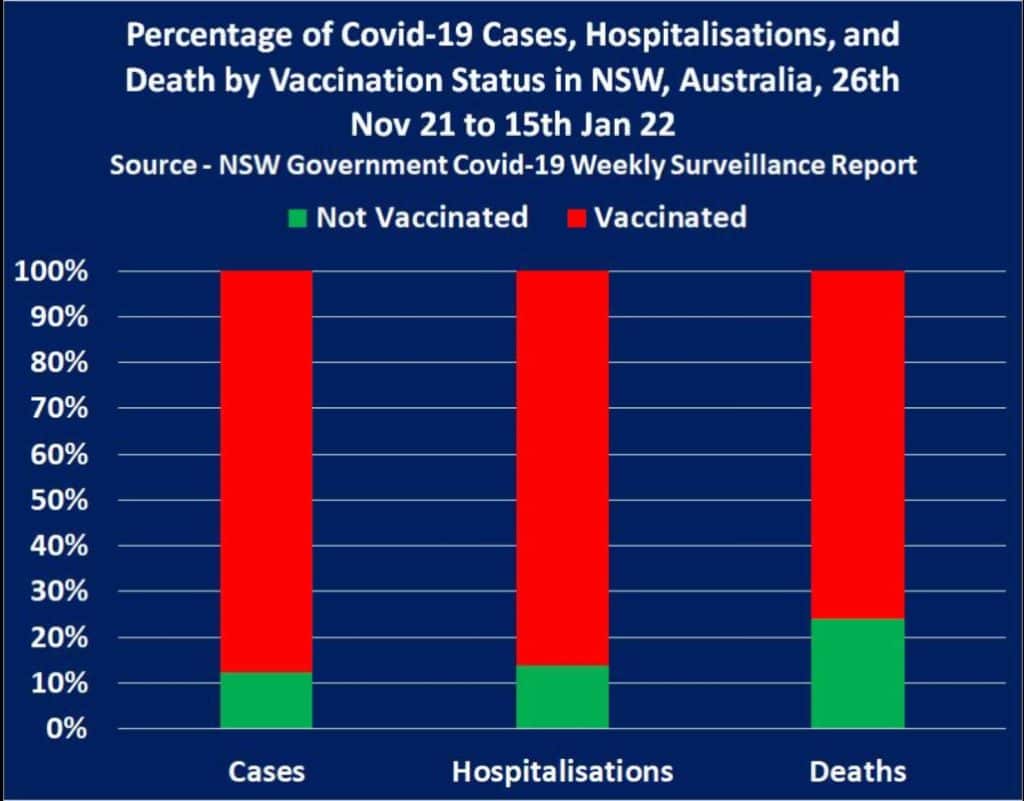
Next, we highlight two landmark comments from a European Parliament investigation. The first, is Dutch member of parliament Rob Roos asking directly if the Pfizer vaccine was tested to stop transmission.
The second, is Pfizer President of International Developed Markets Janine Small admitting NO it wasn't, and making a strange excuse that there wasn't time because they had to move at the speed of science, which has no clear meaning.
This testimony is just the tip of a hidden iceberg of evidence that directly contradicts "safe and effective" statements and promises made by government and health officials, who repeatedly said you won't get sick or transmit the virus if you are vaccinated.
They incorrectly blamed unvaccinated people for causing the pandemic, and in many countries violated their human rights.
Unvaccinated or partially vaccinated people who had legitimate medical reasons or simply wanted to exercise common sense caution for a drug that wasn't properly safety tested, were refused life-saving medical treatment, confined to their homes and rejected by their friends and family, all under false pretences.
Some doctors who know about all the hidden evidence, have described the COVID-19 pandemic as the greatest crime against humanity in history.
If you are ready and strong enough, we will help you understand why they feel this way.
The following section will inform you of the dangers associated with taking any of the COVID-19 experimental injections and is recommended only if you wish to learn about these problems and protect yourself and your loved ones from further harm.

Dutch MP Rob Roos asks, "Was the Pfizer vaccine tested for stopping the transmission of the virus, before it entered the market?"
Pfizer representative Janine Small answers, "If you're asking whether the vaccine was tested for immunization the answer is NO, it wasn't."
Janine Small intentionally doesn't repeat the term "transmission" that was used in the question, referring to a "wild virus" from the environment that theoretically infects a person and gets passed on, but says "immunization," which means vaccinated people will share the contents of the vaccine to immunize others around them.
This is significant, because there are no conclusive studies to show that transmission of a natural virus between humans causes illness, yet the harmful contents of vaccines do.
Therefore, when testifying, as a vaccine manufacturer it is important not to disclose those facts or decades of massive, global fraud, marketing unnecessary, harmful drugs that actually spread illness, might be exposed.

In reality, testing for transmission was intentionally avoided because it would have exposed the historical fact that among the unvaccinated there is no significant transmission, largely due to lack of infection and a functioning immune system.
Yet among the vaccinated, suffering with an impaired immune system and uniform infection, there is high transmission of vaccine produced pathogens by design.
These "leaky" vaccines, as inventor of the mRNA technology Dr. Robert Malone honestly describes them, are intentionally designed to inoculate others in close proximity, which was a perceived advantage to overcome "vaccine hesitancy" in the remaining unvaccinated segment of any target population.
For "the greater good", it was considered necessary to publicly promise protection, while secretly promoting transmission.
Further evidence that medical officials were aware of the ineffectiveness of the COVID-19 vaccines can be found on the FDA website.
At the Vaccines and Related Biological Products Advisory Committee Meeting, section 8.2 Unknown Benefits and Data Gaps, which discusses Vaccine effectiveness against transmission of SARS-CoV-2.
It says, "data are limited to assess the effect of the vaccine against transmission of SARS-CoV-2 from individuals who are infected despite vaccination."

The European database records from May 22nd, 2021, only a few months after the introduction of the COVID-19 gene modification injections in Europe, showed over 12-thousand deaths and one million adverse event injuries.
Normally only 50 to 100 deaths would be sufficient to stop the use of a new drug or treatment. The US numbers were even higher.
Therefore, after only the first two shots, it should have become abundantly clear to any medical officials and politicians not suffering from diminished mental capacity due to environmental toxins or harmful medications, that avoiding death and injury is not part of the COVID-19 vaccination plan.
The booster program should have never seen the light of day. However, media promotion was successful in making people fearful and in this state of mind we do not think clearly.
People reach out to a higher authority for guidance and unfortunately we were not given honest advice and recommendations, from a health and safety perspective.
By December 18th and the first booster shot, the number of European deaths had tripled to over 34 thousand, with over 3 million injuries. The US numbers were even higher.

New York Times' science writer Carl Zimmer noted that there is no proof, evidence or concrete claim from the manufacturers, health experts or governments that the injections impart immunity or inhibit transmissibility of SARS-Cov-2.
Therefore, they do not meet the medical or legal definition of a vaccine in relation to disease. They only claim to reduce symptoms. If they are not vaccines then what are they and what are they for?
Investigative reporter and author Whitney Webb explains that, “The developers of the Oxford-AstraZeneca vaccine have previously undisclosed ties to the re-named British Eugenics Society as well as other Eugenics-linked institutions like the Wellcome Trust.”
The COVID-19 shots are more correctly described as experimental gene modification injections.
However, the marketing teams decided against honesty as the best policy with hundreds of mRNA vaccines in the development pipeline, representing a trillion dollar per year industry globally.
Alert parents might think twice about volunteering their young children for an ongoing genetic experiment.
World leaders and medical officials proclaimed that the shots were up to 95% effective at preventing infection and completely stopped transmission.
They warned that not getting vaccinated would put everyone else at risk of catching a deadly illness.
Some government authorities approved heavy fines and jail sentences for non-compliance in testing or sheltering at home.
They issued severe travel restrictions, ordered solitary confinement, restricted access to food and medical care, and even built re-education camps.
All the while championing the democratic freedoms available for voluntary compliance and "doing your part to keep everyone safe."
Hollywood celebrities and media influencers said to hell with your freedoms, antivaxxers should be denied access to society.
Medical "experts" like Bill Gates said basically society cannot return to normal until the entire world is vaccinated.
This follows his Davos interview comment that vaccines have earned him a 20-fold return on investment.
The COVID-19 pandemic contained all the hallmarks of social conditioning and behaviour modification techniques used in a sophisticated form of military-style psychological operation with carrot and stick coercion, coordinated with mainstream media indoctrination and social media censorship.
It's not surprising then to learn that US Department of Defence has been funding advanced coronavirus research and biological countermeasures for many years, as listed on their website under the ADEPT/ P3 program to use mRNA technology to end pandemics in 60 days.
Top medical doctors and Nobel Prize winning scientists who dared to speak out about Vaccine Adverse Event Reporting System deaths in the tens of thousands, lack of informed consent and Nuremberg Code violations, were labeled as dangerous disinformation spreaders.
They were immediately financially crippled with loss of work and professional medical accreditations.
Public discussions of inexpensive, effective medical treatments that were saving lives around the world were attacked as dangerous misinformation.
Doctors, nurses and scientists who analyzed available data as the pandemic unfolded and exposed criminal activity in hospitals to artificially increase the COVID-19 associated death count were severely punished.

During online interviews Dr. Anthony Fauci, head of the National Institute of Allergy and Infectious Diseases, who also directed health policy at the US Government Coronavirus task force, spoke publicly about how someone in hospital with a broken leg could be labeled a COVID-19 patient with a positive PCR test.
A cycle threshold of 12 to 15, and no higher than 22, where the amount of sample is doubled with each magnification cycle, was considered by experts in the field as appropriate to indicate significant illness requiring isolation.
Fauci mentions that PCR with a 35-cycle threshold would be unreliable and 37 is just dead nucleotides, meaning an invalid test result.
Yet 40+ cycles was the international recommendation that many United Nations' group countries followed, illustrating that an extremely high rate of false positives was an intended outcome.
A corresponding "asymptomatic" category of allegedly "confirmed infection" without any symptoms was created to make healthy people fear each other and accept behaviour modification directives such as "social distancing", "sheltering at home" and closure of small and medium sized businesses, resulting in high rates of unemployment, bankruptcies, domestic abuse and suicides.
If, for example, we begin with one microscopic viral piece of genetic material that is harmless and magnify it 20 times using the PCR method to one million and then say it represents an infection.
And famous Dr. Fauci admits that magnifying the same sample exponentially to a billion makes the result completely unreliable.
Then why did the trusted World Health Organization recommend setting the PCR test magnification exponentially higher to a trillion, where a harmless, broken fragment normally taken out with the trash could trigger a false-positive test result?
This suspicious strategy resulted in a false-positive error rate well over 95% and may explain why when medical authorities in New York closely examined the high number of COVID-19 deaths they confirmed that over 95% were actually caused by other existing health problems.
We can now understand why researchers and medical experts would describe the COVID-19 health emergency as planned or manufactured to promote unnecessary vaccine sales and get the general public to accept a vaccine passport digital identification system, which allows for strict monitoring of vaccine acceptance and restricted travel.
Thank you for completing this lesson that has just scratched the surface of how the COVID-19 vaccines actually work and their risk versus benefit.
We also have created a more advanced Deep Dive course that is highly recommended if you would like to learn more.
It is beneficial to review all the lessons and update your personal progress notes as you are able to incorporate more recommendations into your weekly routines.
Make a note of any new recommendations from this lesson that you are able to add to your daily or weekly routine.
Remind yourself of your mission accomplished goals... say them out loud...
I'm going to regain my health! I'm going to be okay!
Now smile and hold the positive image in your mind.
Have you achieved some of your goals and seen progress in you Personal Progress Profile?
That is great, let's celebrate!
If you went through this course quickly trying to implement recommendations, please understand it can take 3 - 6 months to see significant recovery of your health.
So please be patient, stay positive, continue to add more recommendations to your weekly routine wherever possible, and follow our weekly blog posts with additional information.
Even top medical doctors say it can take up to a year to resolve some serious health issues and significant lifestyle changes may be necessary.
Please share your success stories of health recovery and feel free to comment on our weekly update blog posts.
Best wishes for your recovery and continued good health!
